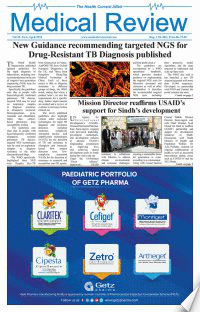Chairman, Task Force on Technology Driven Knowledge Economy, Prof. Dr. Atta-ur-Rahman showed serious concerns over the alarming decline in the sectors of education, science and technology in Muslim World, and said that not a single institution in the Muslim countries was conferred with Nobel Prize so far. He said that the task force, under the supervision of the prime minister, will determine the ways of progress in the light of education, science & technology and innovation so that a technology driven knowledge economy could be developed in the country.
He was speaking at the Inaugural Ceremony of 5th Science and Technology Exchange Program (STEP) International Conference on ‘Health Challenges of Communicable Diseases (CDs) and Non-Communicable Diseases (NCDs)’, jointly organised by Pakistan and Iran, held at the International Center for Chemical and Biological Sciences (ICCBS), University of Karachi on Wednesday.
Pakistan’s prominent research institution, Dr. Panjwani Center for Molecular Medicine and Drug Research (PCMD) of ICCBS – University of Karachi hosted the leading science conference in association with Iranian renowned Mustafa (pbuh) Science and Technology Foundation (MSTF).
The opening ceremony was also addressed by University of Karachi Vice Chancellor Prof. Dr. Muhammad Ajmal Khan, ICCBS Director Prof. Dr. Muhammad Iqbal Choudhary, Prof Dr. Rassoul Dinarvand, Director Nanotechnology Research Center, Adviser to the Minister Home, Iran, Zainab Hameedzady, Adviser to Minister for Women Affairs, Iran, Chairperson Dr. Panjwani Memorial Trust Ms. Nadira Panjwani and Dr. Humaira Jahan. On the occasion, Mr. Ahmad Mohammadi Consul General of the Islamic Republic of Iran in Karachi, Karachi Turkish Consulate General, Consulate General of Thailand in Karachi, President Hamdard Foundation Ms. Sadia Rashid, Hamdard University Vice Chancellor Prof. Dr. Syed Shabib Ul Hasan, Dr. Imtiaz Bashir and other national and international dignitaries were also present.
Prof. Atta-ur-Rahman, former Chairman HEC and Ex-Federal Minister for Science and Technology said that challenges of the 21st century required Pakistan to change its economic directions. We must drastically change the strategy for socio-economic development as natural resources have lost their importance, he said. It is the ability of nations to manufacture and export high value added goods, which determines their state of development. He pointed out that it was for this reason and this reason alone, that tiny Singapore with a population 40 times less than that of Pakistan has exports of US $ 330 billion, 15 times higher than those of Pakistan that stagnate at about US $ 24 billion. Singapore has no natural resources and yet the exports per citizen in Singapore are 600 times higher than Pakistan, he added. Talking about progress, made by Iran, he said that Muslim World, including Pakistan must follow the track of development created by Iran during the ongoing economic sanctions.
Prof. Dr. Muhammad Ajmal Khan said that the time had come for Pakistanis and people of other Muslim counties to stop lip services as the time demanded them to work hard in the field of education, science and technology. He demanded the authorities concerned to spend gigantic funds for the promotion of science and technology in Pakistan. He also welcomed Iranian and other foreigners in the conference.
Prof. Rassoul Dinarvand said that Mustafa (pbuh) Science and Technology Foundation cultivated seeds to raise the status of scientists in Muslim World. In the golden Muslims’ era our scholars laid the foundations of various sciences in the world, he mentioned.
Ms. Zainab Hameedzady said that without achieving progress in education and science, the desirable economic development could not be achieved in Muslim countries. She informed the participants that Iranian government initiated many programs to empower women in Iran.
Prof. Iqbal Choudhary said that Pakistan was in grip of new diseases. He said that 7.7 cases of hepatitis got positive in the country, which spoke volumes over the meager health situation prevailing in the country. The country needs to focus on the causes of such diseases spreading in the country. The international center is the premier research establishment of the third world countries, he said, adding that Pakistan’s prominent research institution, Dr. Panjwani Center for Molecular Medicine and Drug Research was one of its leading research institutions.
Ms. Nadira Panjwani said that Dr. Panjwani Center strongly believed in international collaborations. The mission of this center is to foster excellence and achieve international recognition in the targeted areas of graduate training and research, which are relevant to national needs, she maintained.


